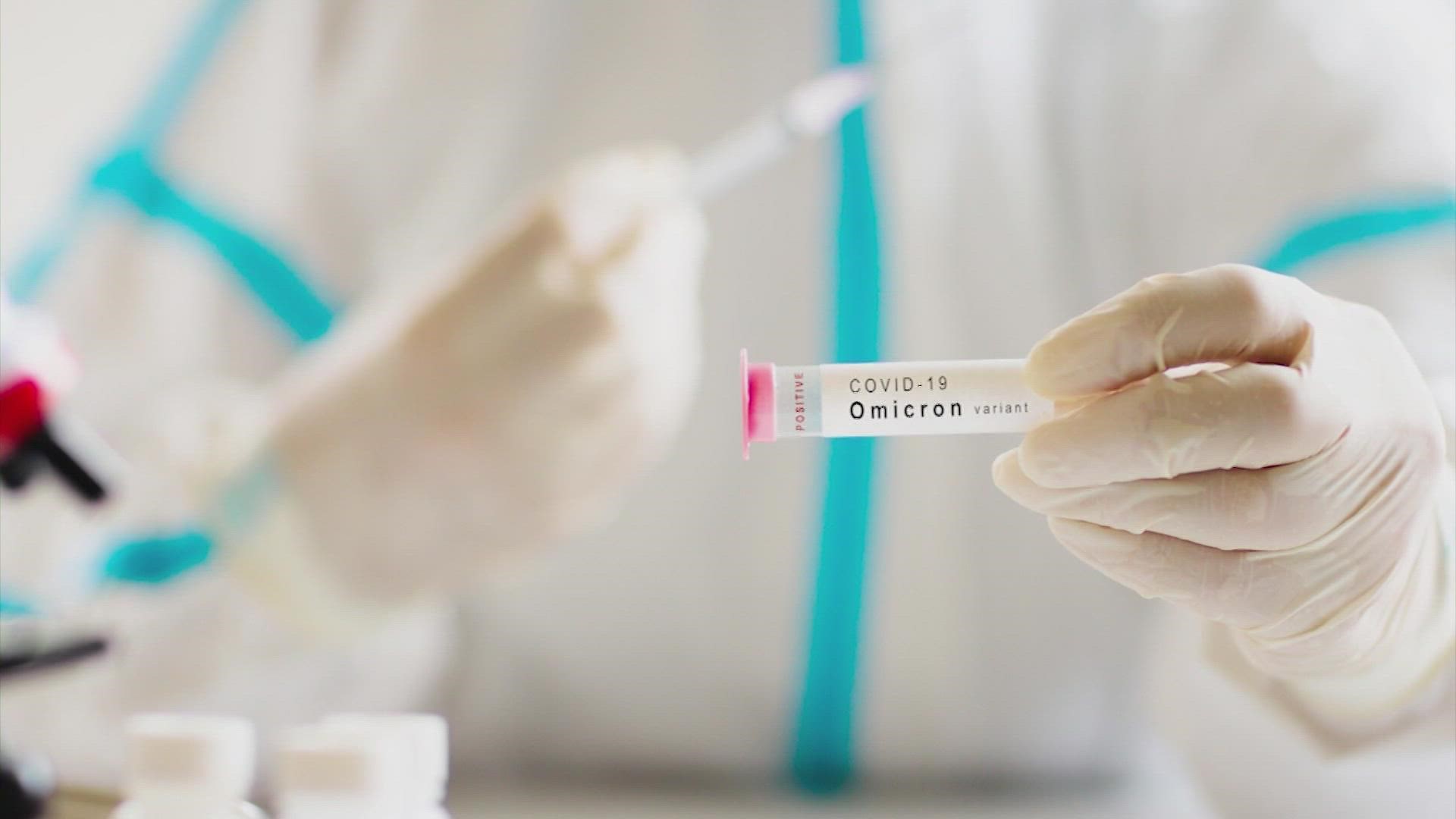HOUSTON — Why scientists are still concerned despite early indications that omicron is less severe?
The omicron variant of COVID-19 is spreading fast. A month ago, South Africa had 300 new coronavirus cases a day. Last Friday, they had more than 16,000 in one day.
The country’s president blames the omicron variant for the surge. In fact, the government says omicron was found in three quarters of all virus samples. And an infectious disease expert in the country also reports hospital admissions are also doubling each day.
But there is some good news. Doctors in the South African hospitals say the patients they are seeing do not have as severe cases of COVID. There are fewer patients in the ICU and fewer on oxygen compared to previous waves.
The problem is we don’t know for sure if that’s because omicron is less severe.
In South Africa, older people are more vaccinated, and omicron is mostly affecting the young and unvaccinated, which could explain fewer severe cases.
Even if omicron does end up being less severe, it could still prove to be problematic. That’s because it could be more contagious than delta.
A doctor with the world health organization told CBS News that if omicron causes a big spike in cases, even if a smaller percentage of those patients were hospitalized, hospitals could still be overwhelmed.
A reminder that there is still a lot we don’t know about omicron.

